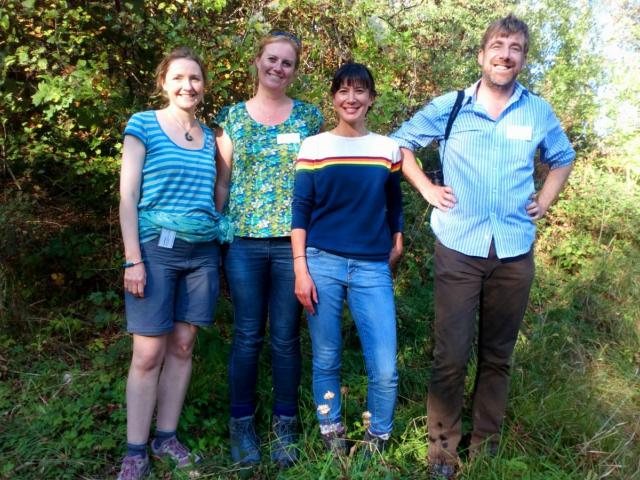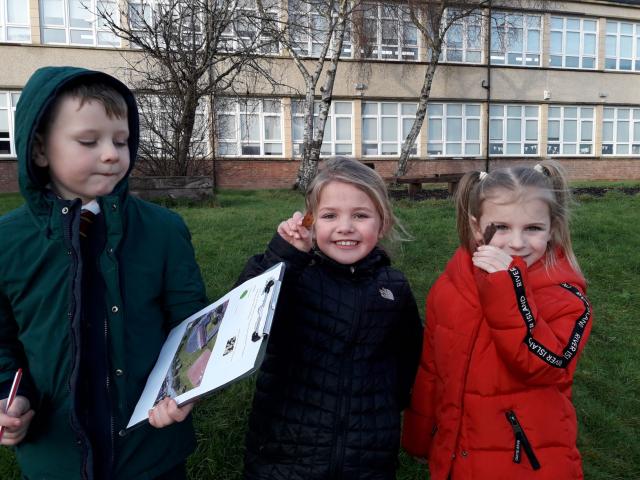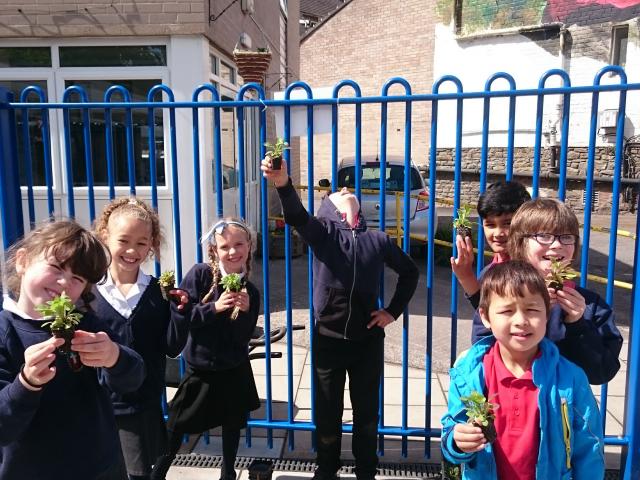Butterfly Conservation's (BC) Senior Education Officer, Kate Merry, takes some time out to talk about BC's Munching Caterpillars project - what it has achieved and plans for the future...
At the time of writing, it is exactly three years since the end of the original Munching Caterpillars education project, which covered Dorset and Somerset and, thanks to funding from the Heritage Lottery Fund, provided a fantastic opportunity for BC to stretch its wings with a programme designed to share our passion for butterflies and moths with a new, younger audience.
Munching Caterpillars was a fantastic project to work on – fun, varied, uplifting, rewarding. The immediate months following the original project’s close felt very quiet by comparison as I sat, desk bound, completing the end of project report.
It was good to reflect on all that the project had achieved. We were confident that the simple, engaging activities and workshops we devised had enabled us to meet our main aim of enthusing young people – and importantly, of inspiring them to take action to help butterflies and moths.
As it turned out it was not the end for Munching Caterpillars, but rather the end of the beginning. There are currently three new Munching Caterpillars projects underway and we have recently sailed past a total of 20,000 children reached through our hands on workshops and exciting activities.
That’s 20,000 children who have discovered the delights of opening a moth trap, peered closely at a caterpillar and who have planted nectar and food plants in their gardens and school grounds.
The Team
The current BC Education Team are delivering projects in Scotland, Hampshire and Bristol with a fourth project beginning in Gloucestershire in the New Year. Each project has broken new ground and enabled us to test new ideas and approaches for improving our education work.

Kate Barrett leads visits from schools across Winchester on to our beautiful Chalk Downland reserve, Magdalen Hill Down.
“My most memorable moment last summer was watching a group of teenagers with mental health issues transform in response to our beautiful chalk downland reserve. They started out very withdrawn and disengaged in the classroom, but once they got onto the reserve they were animatedly hunting out Cinnabar moth caterpillars, photographing Chalkhill Blue butterflies and gently picking up Six Spot Burnet moths. I’ve never seen a group so transformed by the place they are in, it was magical to watch.”
Matt Brierley delivers Munching Caterpillars workshops in the most urban parts of Bristol where his work to connect children with nature has had a huge impact. “There have been many great moments. We visit classes twice and for some that means a gap of six months between visits – but it was amazing how well the kids retained information. I think it’s so important for kids to take ownership of nature by being able to put a name to species, so to know that after six months they could still identify elephant hawk moths, red admirals and cinnabar moth caterpillars was a real result.”

Polly Phillpot is our MC Scotland Project Officer and our newest member of the team.
“Lifelong interests are formed in childhood. I can remember my 5 year old self, sitting on the back step at home nursing a ‘poorly’ small tortoiseshell butterfly. I can still recall examining it as it lay in my hand. I was amazed at how intricate the wings were, made up of hundreds of individual sparkly scales and a mixture of vivid colours. And all this on such small, delicate wings. It is such a privilege to play a part in starting young children on their own nature discoveries.”

The Future
As our project portfolio has grown, so have our ambitions. There is so much more we can do; new areas to reach, new strands to develop.
There is an increasing amount of published research on the importance of connecting children with nature and how ultimately, their behaviour and choices as adults are influenced by these childhood experiences.
There is now more guidance available as to the best ways to encourage that connection, and how to measure and evaluate it.
We will keep working to ensure our projects and activities keep developing, while keeping true to what we do best; sharing our passion and enthusiasm for these remarkable and beautiful insects. One day, I would like to see Munching Caterpillars taken all over the UK, reaching every child, in every classroom.
BC would like to say a huge thank you to all of our Branch volunteers, partners and funders involved in helping Munching Caterpillars along the way, especially:


